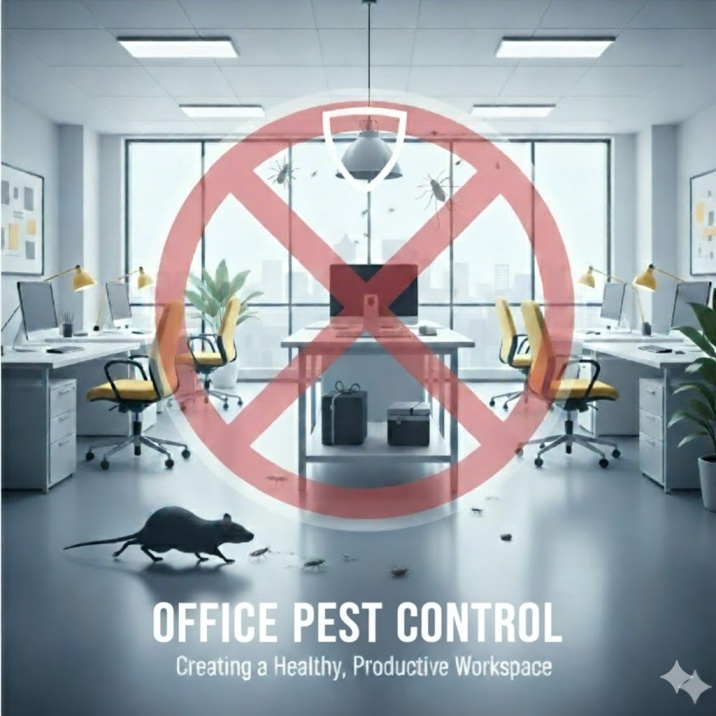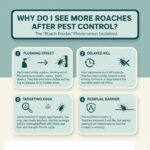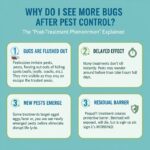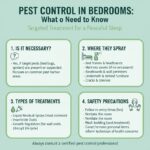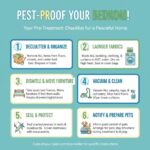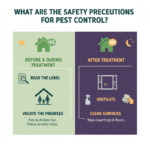A clean and pest-free office isn’t just about appearances. Pests can damage electronics, contaminate food, spread germs, and create distractions that reduce productivity. From startups to large corporate buildings, office pest control is an essential part of maintaining a healthy workplace.
Offices are unique because they combine high human activity with spaces that are hard to clean regularly. Kitchens, break rooms, storage closets, and even office plants can attract pests. Addressing these risks early protects employees and safeguards company resources.
Why Office Pest Control Matters
Even a minor pest problem can disrupt work and harm a business’s reputation. Common issues caused by pests in offices include:
- Health risks: Cockroaches and rodents carry bacteria and allergens that can affect staff.
- Property damage: Chewed wires, gnawed furniture, and ruined office supplies are common with rodents.
- Food contamination: Snacks left in desks, communal coffee areas, and pantry items can attract ants and rodents.
- Employee productivity: Constant distractions from pests can reduce focus and morale.
Preventing infestations keeps employees safe and ensures a professional, welcoming environment for clients and visitors.
Common Office Pests
Certain pests are more likely to target offices:
- Rodents: Mice and rats often hide in storage areas, behind furniture, or near electrical equipment.
- Cockroaches: These pests thrive in kitchens, bathrooms, and break rooms where food crumbs and moisture exist.
- Ants: Sugar and food spills attract ants, which can spread quickly across the office.
- Flies: Trash bins, compost containers, and uncovered food can attract flies.
- Spiders: While harmless, spiders can make employees uncomfortable and create webs in corners.
Understanding the specific pests present helps create effective control strategies.
How Pests Invade Offices
Pests often enter through areas that are overlooked:
- Small cracks in walls, floors, or ceilings
- Open doors and windows during deliveries
- Air vents and ductwork
- Unsealed food storage or unattended snacks
- Office plants with standing water
Recognizing the signs of a pest problem early—droppings, gnawed furniture, insect sightings—prevents infestations from escalating.
Effective Office Pest Control Strategies
1. Routine Monitoring
Regular walkthroughs of break rooms, storage areas, and common spaces help detect early pest activity. Routine monitoring ensures minor issues are resolved before they affect the workplace.
2. Cleanliness and Waste Management
Maintaining a tidy office is one of the simplest yet most effective ways to prevent pests:
- Empty trash bins daily
- Wipe counters and tables in kitchens and break rooms
- Store food in sealed containers
- Keep floors and corners clean and dry
3. Professional Pest Control Services
Experts in office pest control use targeted methods that minimize disruption and protect employees. This demonstrates the benefits of professional pest control, such as safe chemical application and long-term monitoring.
4. Integrated Pest Management
IPM combines prevention, monitoring, and treatment to manage infestations efficiently. Pest treatment methods may include:
- Bait stations for rodents
- Traps for insects
- Non-toxic sprays for sensitive areas
- Environmental changes to remove hiding spots
5. Employee Awareness
Staff can play a key role in keeping offices pest-free. Encouraging proper food storage, reporting sightings, and maintaining clean desks reduces potential pest attractions.
Choosing the Right Office Pest Control Service
When hiring a provider, consider:
- Use of chemicals is safe for work environments
- Customized plans for different office areas
- Strict adherence to safety protocols
- Services for urgent issues, including emergency pest control services for sudden infestations
Professional services from Pest Control Cincinnati help prevent downtime, reduce health risks, and protect office assets. Call us today for a pest-free workplace!
Maintaining a Pest-Free Office
Even after treatments, offices should maintain good habits and monitor for returning pests. Scheduling follow-up visits and tracking how long pest control treatments remain effective helps ensure a lasting solution.
FAQs About Office Pest Control
-
Why is office pest control important?
Pests can harm employee health, damage property, and reduce productivity. Keeping offices pest-free maintains a safe and professional environment.
-
How often should offices be inspected?
Routine inspections of kitchens, storage areas, and high-traffic spaces help catch infestations early.
-
Are office pest control treatments safe for employees?
Yes, professional services use chemicals and methods approved for workplace use.
-
Can pests return after treatment?
Yes, pests can return if conditions remain favorable. Understanding whether pests can return after treatment helps offices plan preventative measures.
-
What is integrated pest management for offices?
IPM combines monitoring, prevention, and targeted treatments to control pests efficiently while minimizing chemical exposure.
-
How much does office pest control cost?
Costs vary based on office size and treatment needs. Information about pest control pricing helps with planning budgets.
-
What are the early signs of a pest problem in an office?
Droppings, gnawed items, food contamination, and insect sightings are clear indicators that action is needed.

